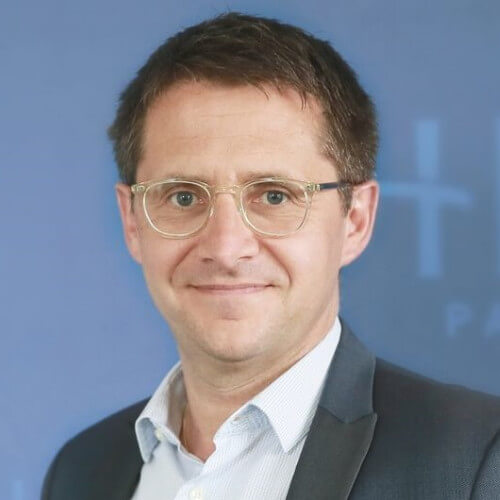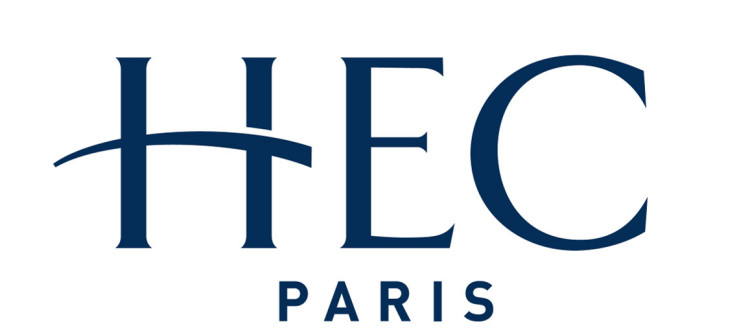- Learning
Tailor-Made Leadership for the Post-Pandemic World
Emmanuel JouJon explains how HEC Paris’s custom programs are adapting to meet the changing needs of executives and companies beyond the pandemic
The COVID pandemic has upended our lives and challenged our perception of work. At the highest levels, it has exposed both a need for and often a lack of critical management skills such as empathy, agility, and resilience.
Over the last year, executives from a wide range of sectors and industries have turned to HEC Paris to develop programs that will support leaders in the new world of business and prepare them to take their companies through the pandemic and beyond.
In this article, Emmanuel Joujon, International Accounts Director at HEC Paris Executive Education, explains the practices and methods that used in HEC’s custom programs to meet the specific needs and priorities of executives and their companies worldwide. In his current role, he leads the design and sales of custom programs for executives and senior managers in multinational corporations.
A more personalized future
The current corporate landscape, from an executive talent perspective, is different than it was 18 months ago. “At the moment corporations are trying to resume their existing executive and talent development programs, adapting them to the constraints of the COVID situation,” says Emmanuel Joujon.
In order to do that, they are changing the way in which they offer professional development opportunities to their leadership teams. “One thing we’ve noticed is that a lot of our offerings used to be talent programs focused on larger, global, cross-functional projects,” notes Joujon, “But now the projects tend to be more focused on a specific function and on becoming a more strategic, assertive business partner, which requires a certain level of business acumen.”
In terms of delivery, more and more participants are choosing to learn digitally instead of in a classroom. “The specific programs tend to be shorter, and it’s now easier to deliver them in a remote format,” he remarks. “I think digital delivery is here to stay, but I think going forward corporations will opt for a blended learning approach. I think being able to create an environment where everybody knows each other personally will still be necessary; you can do it remotely, but it takes more time to create this confidence that makes people happy to talk about themselves and their business issues.”
Building resilience in an ever-changing landscape
Another focus of leadership currently in demand is managing transformation within an organization. “There is still an array of very fast transitions regarding the recent digital transformation and new players coming to disrupt the organization, so it’s about being strategic in thinking about how to reinvent yourself and reboot your business,” says Joujon. “Being resilient puts the organization and its leaders under pressure—with any change comes uncertainty and stress—and this has been accentuated by the pandemic.”
HEC Paris aims to help businesses deal with these issues by partnering with corporations to provide the specific support they need to meet their challenges successfully, aided by top international faculty who have extensive experience of working together as a team to achieve client objectives. “We consider all our clients to be unique, and we focus on their specific challenges,” states Joujon. “We are able to adapt the program and pedagogy with agility to achieve the goals of the organization. We do not replicate a given learning journey; we co-design it with the company and base the content on the objectives and constraints of our clients.”
Partnering to create a custom program
From the outset, HEC Paris carries out interviews with key stakeholders within the organization to understand their motivations, challenges and performance blockers to create a unique learning path. This information gathering stage enables HEC Paris to identify the key strategic priorities.
“When the vision and strategy is clear, a custom program can become a core initiative to implement the strategy,” Joujon affirms. “We make sure we clearly identify the mission, the strategy of the organization, where we want to move the needle and what are the specific blockers we want to address with the program.”
However, as Joujon points out, the collaboration can only be optimal if neither HEC Paris nor the corporation approaches the partnership with a definitive idea about what the solution will be or what the program will look like.
“We achieve more if we spend time together articulating the issues and identifying the questions we should be answering,” he observes. “The learning officer has a key role to play as a trusted adviser to his or her internal clients, by asking the right questions and also by giving us access to the right experts and leaders to get the customer knowledge and insights we need.”
The program is also often used to identify, retain and recognize talent with a growth mindset. “You want to make sure those talents are motivated to go the extra mile, to invest in their own development,” Joujon affirms. “Then you can create a network of high potentials which can focus on the same topics. Diverse groups of high potentials or executives can work in small teams to move key transformation initiatives forward or generate new ideas to develop solutions for complex business issues.”
Connections to last a lifetime
From there, HEC provides three key ingredients: rich content based on solid research foundations, connections to the participants' professional contexts and memorable experiences to create emotions and reactions.
“In a lot of our programs we address the issue of self-awareness and awareness of others, as well as improving self-confidence and interpersonal skills,” he explains. “The message is that it’s time to step back, open up to other points of view, and work together to rethink the strategy and vision.”
Through the classes, participants meet a strong network of C-level alumni, start-up entrepreneurs, established leaders and industry experts. “We have programs that focus specifically on leadership styles, how to manage contradictions and paradoxes, and we have the means to create a safe environment, a test environment, where people feel comfortable sharing their issues with one another,” states Joujon. “A lot of learning happens in this peer-to-peer environment.”
Measuring impact for maximum ROI
The impact of the program can be measured on several levels. The primary level is simply with satisfaction surveys at the end of each module, where participants give quantitative and qualitative feedback. Another way is having the cohorts produce a final project and then measuring the success of that project.
“To be able to measure the tangible impact on the company and the participants, we need to be able to clearly define the KPIs we need to use,” says Joujon. “We work closely with the organization to determine some specific business criteria so that we can show a direct correlation between the participants who have followed the program, and these measures.”
After the program, participants present what they have tried to implement, along with what the challenges and successes were. “They go back to their working environment and then measure whether they have changed their habits, because it is one thing to learn something and another to develop a new skill and use that skill effectively,” he concludes.
ARTICLES YOU MIGHT LIKE
VIEWPOINT
For Thomas Misslin, transformation rather than training is the aim of executive education at emlyon business school
DEVELOPING LEADERS QUARTERLY MAGAZINE AND WEEKLY BRIEFING EMAILS


































